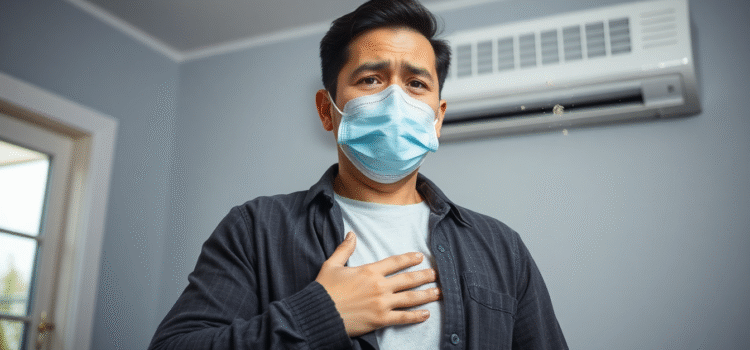
Air Conditioners and Health: 7 Warning Signs and the Rise in Respiratory Issues
Recent reports highlight a concerning 30% rise in respiratory issues linked to air conditioner usage. As l delve into this matter, it’s crucial to acknowledge the key warning signs and understand why maintaining these units is essential for good health. This post will guide you through identifying potential health risks from air conditioners and offer insights to prevent respiratory problems.
1. Key Warning Signs of Health Risks from Air Conditioners
Mold Growth and Microbial Contamination
A significant health risk of air conditioning units is mold growth. Studies indicate that up to 40% of residential air conditioners harbor mold and bacteria, which can exacerbate allergies and asthma. This microbial contamination is a primary trigger for respiratory problems from air conditioning.
Poor Ventilation and Incorrect Temperature Settings
Poor ventilation disrupts indoor air quality, leading to a host of AC health effects. Incorrect temperature settings can also impact respiratory health, causing discomfort and increasing the risk of infections.

2. Impact of Infrequent Maintenance on Indoor Air Quality
Statistics reveal that 60% of users neglect to clean filters regularly, significantly affecting air quality. This negligence contributes to indoor air pollution and is a major factor in air conditioning respiratory symptoms, with implications for conditions such as chronic obstructive pulmonary disease (COPD).
3. Addressing the Rise in Respiratory Issues from Air Conditioners
Improperly maintained air conditioners are directly linked to increased respiratory problems and AC usage. To mitigate these effects, l recommend:
- Regular professional maintenance to ensure efficient operation.
- Frequent cleaning of air conditioner filters to reduce the build-up of allergens.
- Ensuring adequate ventilation in your living space.
- Adjusting temperature settings to safe, comfortable levels.
Conclusion
The rise in respiratory issues associated with air conditioner usage is a public health concern. Identifying signs your air conditioner is making you sick is crucial in preventing AC-related health problems. Regular maintenance and conscientious usage can significantly improve air quality and reduce health risks. Please contribute in the comments section below if you have strategies to maintain air conditioning health safety in your home.
Sources
FAQ
What are some common air conditioner health warnings? Regular sneezing, coughing, or other allergy-like symptoms might indicate your air conditioner is impacting your health.
What are the health risks of air conditioning? Improperly maintained units can lead to mold growth and poor air quality, exacerbating allergies and respiratory issues.
How do I know if my air conditioner is causing respiratory issues? Sudden increases in respiratory complications, allergies, or asthma attacks are signs your air conditioner might be to blame.
What can I do to prevent air conditioning-related breathing problems? Routine maintenance, filter cleaning, and ensuring good ventilation are key preventative measures.
Can air conditioning affect asthma? Yes, allergens and poor air quality from AC units can act as asthma triggers.







